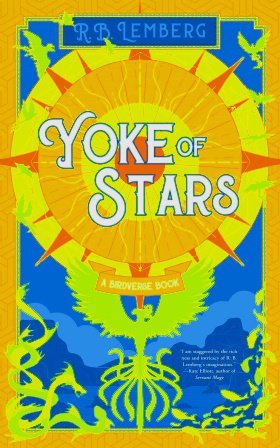I did not understand much of this exchange, but I sensed that Ladder had gained the upper hand, the Raker defensive and sullen.
Ladder said, “Go find yourself room among the others in the first circle. I doubt you’ll enjoy it, but these are the rules of this court. Work hard, and you will meet the Orphan.”
I did not talk to the Raker after that, but I watched him out of the corners of my eyes. He was determined and driven, relentlessly angry and unbeatable. I heard that the others in his room gave him a wide berth, as if they were afraid of him, but I learned from observing that he would wait for others to rush him before striking. He would not attack first.
It took me years to leave the first circle, but the Raker was speedier. Within a few months, in the night, I heard the iron clang of the trapdoor open and close.
The next day, the Headmaster told me that the Raker had perished in the Orphan. “It is a relief,” he said, “to have him gone.” But his eyes betrayed such agitation that I had to look away. It took four long days for that agitation to settle in Ladder’s eyes, and trainings returned to a semblance of normal instead of the previous frenzy.
Deep at night, I was lying in my too-shallow pool trying to breathe well enough to sleep, when the door creaked open. I surfaced, sputtering but ready to strike, but it was only the Raker. He came inside and flung himself upon the spare bed.
“I heard there’s room here,” he said. “I guess I’m in second circle now.”
I did not know what to say. How could you spend five whole nights in the Orphan Star and come back to the land of the living? I barely survived the one!
What I said was, “Nobody wanted to room with me before. Are you sure?”
The Raker grunted.
My thoughts churned on. What did you see when you descended? How did the Headmaster know to extend his ladder to you when he thought you were dead?
I thought the flatness of my despair would be there forever, but now curiosity stirred within me once more, like a tiny sparkle of sunrise in the wave. I settled for something simple.
“Did the Orphan shorten or lengthen your deepnames?” I asked.
“No,” he said.
I sat up in my pool, trying to breathe levelly. There was never enough water here, and it dried out. The transitions between air and water bothered me more than I wanted to let on.
At last, I told him, “Assassins need to have matched deepnames. One and one, Shraga. Two and two, Dirks. Three and three, Garottes. And so on. The star tempers us to this pattern.”
“Nobody touches my deepnames.”
I fell asleep after that, and slept soundly for the first time in months, even years. When I woke, I saw that the water in my pool was deeper and clearer.
“What happened here?” I asked the Raker.
“You thrash around too much,” he said.
Ulín’s expression is odd; I cannot read it. “When did you figure out he was my brother?”
I shrug. “When you called him Tajer, a while ago. He shared that name with me, later.” Truth is, I wondered even before that.
A look of betrayal flickers in her eyes, then dissipates. “Why didn’t you tell me sooner?”
“Would you, in my place?” Perhaps it does not matter if she would. “Our tales were unsheathed together. You told me his story as you knew it, and now I am telling you mine.”
That hint of betrayal is in Ulín’s voice when she speaks. “Are you trying to make me feel for him?”
I feel frustrated now, too. “No, I’m not trying to make you feel for him. He is not an easy person to feel for, although I’m sure many feel something. Do you want me to stop?”
She is silent. In my mind, I have already drafted the dictionary of her silences. This one, I think, is curiosity beyond reason, a desire to know that transcends even pain.
I say, “Very well. Then I shall continue my tale.”
That morning, the Headmaster was shocked to see the Raker back in the training court. Ladder’s face was motionless, but the corners of his eyes twitched just so, and I had studied his body. If he did not know the Raker was back, if no ladder had been extended to him, then how did the Raker return from the coals of the Orphan Star?
I asked him that question myself later that night.
“You ask too many questions,” the Raker said.

























